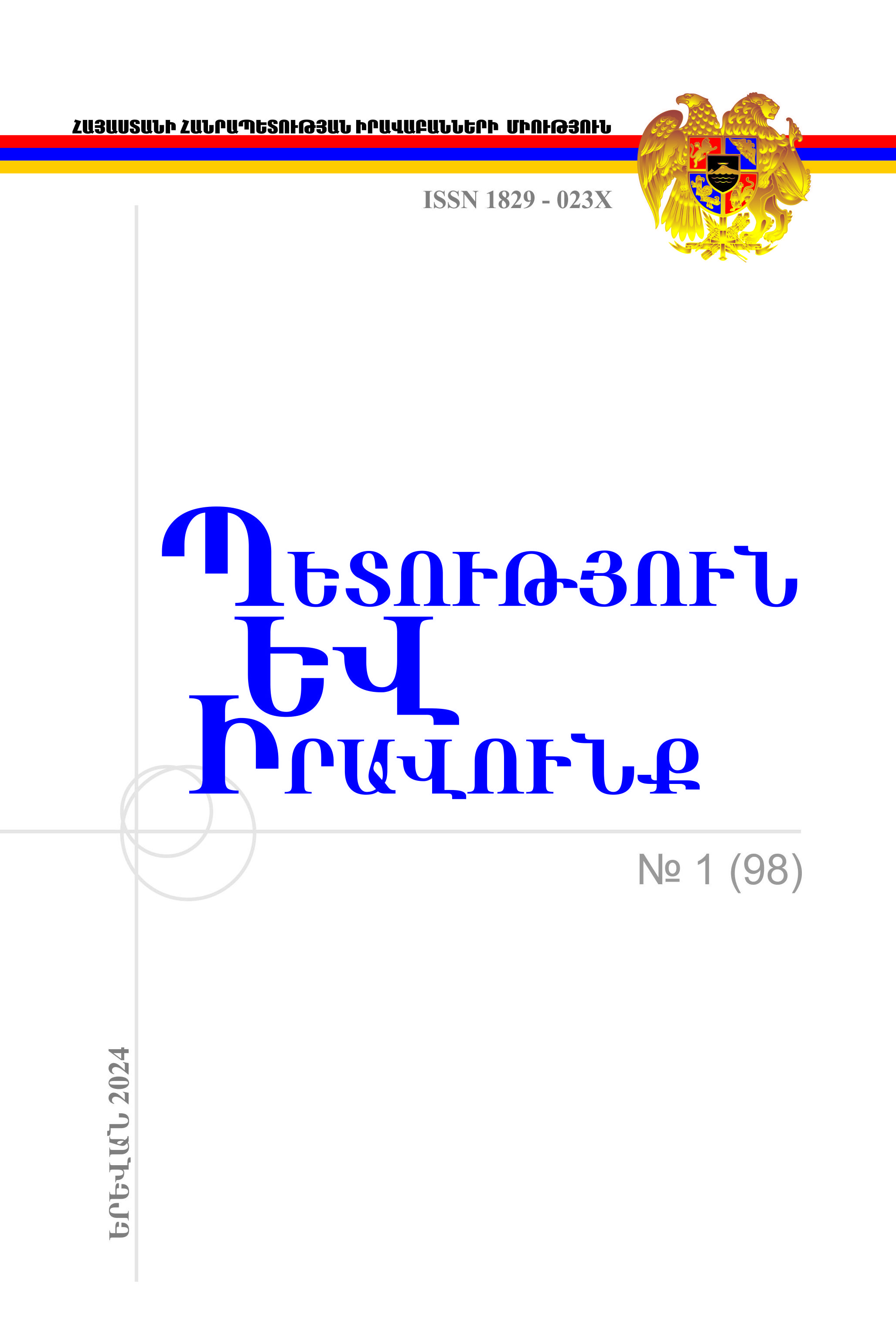STATE OF EMERGENCY AND COORDINATION ISSUES
DOI:
https://doi.org/10.46991/SL/2024.98.023Keywords:
special administrative regime, state of emergency, management method, horizontal coordination, vertical coordination, commandant, commandant’s officeAbstract
The article is devoted to the analysis of the features of management under the legal regime of the state of emergency. In particular, within the framework of the article, the essence and importance of coordination from management methods in the case of declaring a legal regime of emergency were discussed from the point of view of ensuring the coordinated activity of state and local self-government bodies and officials, which as a final result leads to overcoming the situation as quickly and efficiently as possible. In the framework of this article, the author also discussed the expediency of forming a body with special powers, its legal status and the content of its functions in the event of declaring a state of emergency and other regimes equivalent to it. The international practice of forming such bodies has been lifted, especially during the spread of the coronavirus pandemic.
As a result of the analysis, the author came to the conclusion that in the case of a state of emergency or other equivalent management regime, the horizontal coordination of the activities of state and local self-government bodies is of primary importance. In order to carry out such a function more effectively, it is acceptable to form a certain body provided by law and on a temporary basis, but the created body should not replace other bodies and take over the implementation of their powers. The task of such a body should be the operative collection and analysis of the existing information due to the situation, the presentation of recommendations on the necessary measures to be applied, and the support for the implementation of already made decisions. Moreover, it is important that the implemented coordination is carried out on a horizontal and not a vertical basis, contributing to the higher responsibility towards the decisions made by the officials.
Considering coordination as a type of management in subordinate relations is not justified, because in the case of vertical management, coordination is, in fact, not a method of management, but a goal, in particular, in the end result of management, it is necessary to ensure coordinated activities within the framework of vertical management.
Downloads
Published
Issue
Section
License
Copyright (c) 2024 State and Law

This work is licensed under a Creative Commons Attribution-NonCommercial 4.0 International License.

